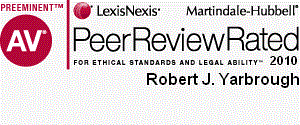Newsletter Issue 34 - December 2011
In this issue:
Ask Dr. Copyright . . . Protect Your Software, Circuit
Boards, and Mask Works
Quick Patent Application Review for Green Technologies
French Fries Sue Crabs
Has Your Privacy Been Breached?...Now You Have a
Resource.
 Ask Dr. Copyright . . . Protect Your Software, Circuit Boards, and
Mask Works
Ask Dr. Copyright . . . Protect Your Software, Circuit Boards, and
Mask Works
Dear Doc:My company makes small electronic products. We design circuit boards and write software, selling the finished products to a variety of industries. Recently, we found out that a former employee may have given our designs to a competitor. Can copyright law help us?
Signed,
Ripped-Off
Dear Rip:
You betcha (as Sarah Palin has been heard to proclaim)... copyright is one of the legal "arrows" in your "quiver" and you should promptly nock and draw your bow. Then, as the Marines say, it's as simple as Ready, Fire, Aim! But first you must take some preliminary steps before making those thieving miscreants wish that they had never darkened your door.
As you may know, copyright registration provides certain legal rights, most importantly the right to sue in federal court, and the possibility of recovering attorney's fees from the infringer. So you will want to register your copyrights even though all works of authorship are automatically copyrighted when they are "fixed in a tangible medium of expression."
Under United States Copyright Law (17 U.S.C. §§101 et seq.), circuit boards and similar products may be simultaneously protected by several copyrights. The source code and the finished object code for your software products are the first things you should register. If the code is actually engineered into a chip, there is also a type of registration called a "Mask Work Registration" that protects the artwork for the chip itself. Another thing often overlooked is that the printed circuit board (PCB) design itself is separately registrable. Pirates often just copy the board itself. Because the top and bottom layers of the board are directly visible to a judge and jury, it is usually easy to demonstrate copying, making a case just about "open and shut". Don't forget the schematic (and netlist if you use PCB design systems,) because these are copied by pirates, and the same kind of simple visual comparisons are easily shown to judges and juries.
The simple truth is that for companies making electronic devices that may be copied by others, having a system of copyright registration that covers every aspect of the product and is performed automatically whenever the product is revised or updated may be among the most effective means of keeping unfair competitors and disloyal employees honest, or at least, off balance and on the defensive. The attorneys at LW&H have plenty of experience in these matters...give them a call.
Lawrence Husick
Quick Patent Application Review for Green Technologies
Most inventors wait
two to three years for a decision on a utility
patent application by the PTO, and some wait much longer. Applicants
with ample resources can pay an
extra PTO fee ($2,400.00 for a small
entity) for quick review. If your invention will result in a cleaner
environment or reduced use of fossil fuels, you have a cheaper and
faster alternative - the
Green Technology Pilot Program. The PTO's Green Technology Pilot Program has been around since 2009 and has now been extended through March, 2012. The Green Technology program promises that upon filing a petition, your patent application for a qualifying green invention will be reviewed within one year. Restrictions apply, including restrictions on the number of claims.
We can testify that the Green Technology program works. We have submitted two petitions for Green Technology review for two different wind power inventions. Both petitions were granted and the patent applications were quickly reviewed by the PTO, one within weeks. Both reviews resulted in allowed claims. If your invention qualifies, we recommend that you consider the Green Technology Pilot Program.
Robert Yarbrough
 French Fries Sue Crabs...What Next?
French Fries Sue Crabs...What Next?
The owner of the popular Chickie and Pete's (CP) restaurant chain,
Pete Ciarrocchi, is on a tear trying to maintain his monopoly over
the use of "crab fries," a seasoned french fry product, which
Philadelphia Magazine claims Ciarrocchi invented. Not so says a
handful of restaurants in the Maryland eastern shore who have
orchestrated a grass roots movement to save the crab fry complete
with, of course, a
Facebook page and
blog. Some
lawyers in Maryland
claim that local use of the term "Maryland Crab Fries" and "Crabby
Fries" is not similar to CP's mark, is not likely to cause confusion
outside of CP's market and CP's mark is just too generic to deserve
registration. Against this backdrop, CP is defending its trademark
rights and has sued the parent organization of certain Maryland
restaurants -- New York J & P Pizza -- alleging trademark
infringement, unfair competition, trademark dilution and other
causes of action. If you're a regular reader of our newsletter, you will understand that trademark owners have a legal duty to defend their trademarks. In the process, however, a trademark owner can lose its rights if the alleged infringer is able to prove in court that the mark is generic or, put another way, lacks distinctiveness. If every restaurant in Maryland and the eastern seaboard sold "crab fries", for example, there would be nothing distinctive of CP's use of the same phrase. We're not experts on the use of the "crab fries" mark but typically in these situations, business considerations will prevail over legal right. CP has successfully defended its trademark for years by simply threatening to sue alleged infringers. It's very expensive to defend a trademark infringement action. Lawyers must be hired, court costs paid, and someone has to foot the bill for the business disruption and distraction caused by the lawsuit. If you're a small business owner, like many of the restaurants in Maryland's shore areas, its hard to justify the expense and its far easier (and cheaper) to change the menu. Unless CP's suit against New York J & P Pizza has a different bottom line equation -- and it might -- we predict a quick settlement.
Adam Garson
 Has Your Privacy Been Breached? Now You Have a Resource.
Has Your Privacy Been Breached? Now You Have a Resource.
Ever wonder if private information about you has been made publicly
available on the Internet? You could search the Internet underground
to discover if someone is distributing information about you, but
such a search would require knowledge of where to look that most of
us do not have. Now there is help out there. Alen Puzic and fellow security researchers have established a website that anyone can use to discover if their e-mail address is among breached records available on the Internet. You enter your e-mail address or user name and the site tells you whether your address is among those in its database.
So you may wonder where the compromised information is found. Puzic initially amassed about five million breached records containing about three and a half million e-mail addresses and one and a half million user names that had been published by online attackers or otherwise inadvertently exposed. Puzic uses internet crawling spiders to index underground hacking forums, account dumps from hacking groups, Pastebin, as well as accessible releases of public information, e-mail services, social media sites, merchants, and even financial institutions. The site is updated every 24 hours, and a current count of the number of entries is displayed on the first page of the web site. The site claims that none of the information associated with each e-mail address is retained, only the address itself . In addition, no queries of the web site are stored, but if you are concerned, a securely hashed input (using a publicly available hashing algorithm) is provided to search the site.

